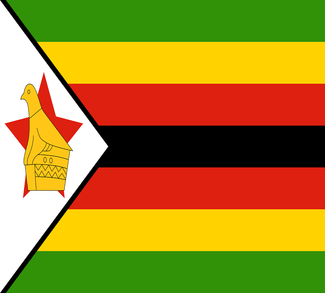As the Donald Trump administration assumes office for a second time, there will be considerable focus on the United States and its relationship with South Asia. One area of this focus will be the way in which Trump engages with Pakistan and Bangladesh, particularly given the inconsistent policies of the previous administration toward them. It will be important to observe whether these disparities persist or if a more balanced and consistent approach emerges; election malpractice in both countries’ 2024 general election provides an apt case study.
Both Bangladesh and Pakistan held general elections in January and February 2024 respectively, and in each case, the democratic integrity of the election was called into question. In Bangladesh, the election was characterized by government crackdowns on opposition party members, journalists, and protesters. A new Cyber Security Act was passed in the months leading up to the election, viewed as a rebranding of the 2018 Digital Security Act. Both acts include a section granting the director general of the National Cyber Security Agency the power to remove online content where the government of Bangladesh is criticized, mandating both fines and jail terms in more extreme cases for those engaging in “anti-state” behavior. Since 2018, roughly 40 percent of documented arrests under the Digital Security Act have been members or supporters of the BNP, the rivals of the leading party the Awami League. In light of this, the BNP chose to boycott the 2024 election, which they described as a “sham.”
One month later, similar accusations were leveled against the election process in Pakistan. While Pakistan’s former Prime Minister Imran Khan remains in jail on spurious corruption charges, his Pakistan Tehreek-e-Insaf (PTI) Party, which is still considered to be Pakistan’s most popular party, lost its right to use an election symbol. Elections symbols are essential to the political campaigning process as they make a party and its campaign material easy to visually identify.
To avoid accusations of operating as a one-party state, authorities in both Bangladesh and Pakistan stopped short of fully banning opposition parties, BNP and PTI, from participating in elections. PTI candidates were required to run as independents and both Pakistani and Bangladeshi governments implemented measures aimed at diminishing opposition parties’ chances of electoral success.
In the case of Pakistan, footage and photographs taken by civilians depict further actions meant to blatantly skew results on the day of the election. A photograph of an original election commission form shows a PTI candidate running as an independent winning 584 votes in one area. On the uploaded version of the same form however, the “5” has been crossed out so the number of votes won reads only 84. Although the country has a turbulent history with maintaining its democratic processes, this recent election rigging does appear to represent an unprecedented decline in its commitment to democracy.
It also appears that internet shutdowns took place in both countries during the 2024 election period. Usually on the day of a general election Pakistani civilians would text a particular number to find out the location of their nearest polling station. With mobile service down they were unable to do this, and it seems that polling stations were moved to new locations at the last minute, with members of the same household being sent to locations miles apart in some cases. In Bangladesh, internet shutdowns were more sporadic but tended to be initiated prior to arranged BNP rallies.
A Democratic Double Standard?
Given the similarities observed in the election processes of both countries, the starkly different responses from the United States have garnered significant attention from the international media. In response to the accusations of the obstruction of democracy in Bangladesh, the US State Department made a statement about its concern regarding the “arrests of thousands of political opposition members and reports of irregularities on election day.” The wording mirrors other US statements made in response to claims of election misconduct in a number of different countries. For example, the United States released a press statement condemning “President Maduro’s threat to ban opposition parties from participating in next year’s presidential elections” in Venezuela back in 2017, and another statement describing the “climate of fear” in which the Belarussian elections were conducted this year.
No such statement was released addressing the allegations of election fraud in Pakistan, however. State Department official Jen Psaki announced: “We congratulate Prime Minister Nawaz Sharif on his party’s success in the May 11th elections and look forward to working with him and the newly democratically elected government of Pakistan.” Their characterization of the government as “democratically elected” suggests that the U.S. does not officially endorse the accusations of electoral malpractice as they do in the case of Bangladesh.
In the lead up to the Bangladesh general election, Joe Biden threatened visa sanctions against any of the country’s officials who undermined the process of free and fair elections, warning that US visas could be withheld from guilty officials and their families. Such measures stand in stark contrast to US apathy regarding the arguably more blatant violations in Pakistan.
The United States also excluded Bangladesh from the Summit for Democracy it hosted virtually in December 2021, but notably invited Pakistan, although they chose not to attend. Their absence was construed by some as an attempt to appease their allies in China and not appear too closely aligned with US-led initiatives. The discrepancies between the way the United States responds to similar actions in Bangladesh and Pakistan appear to have soured US-Bangladesh relations, with Sheikh Hasina warning in a public statement that “that there are other countries and other continents in the world” that “we will make friends with.”
The Geopolitical Context
Hasina’s reminder may be a nod to the efforts of the US rivals, notably China, in courting Bangladesh in light of their highly strategic location at the northern apex of the Bay of Bengal. While taking a stand against the erosion of democracy in Bangladesh could be seen as a way to bolster the US image as a champion of free elections, the inconsistency in its responses is impacting both its bilateral relationship with Bangladesh and its broader international reputation.
Alongside these discrepancies, Sheikh Hasina has also accused the United States of directly interfering in Bangladeshi politics. She claims that in the lead up to the election, Washington offered to guarantee a smooth election for her party if she agreed to the construction of an airbase on Bangladeshi land. The U.S. has strongly denied such allegations. In the summer following the general election, student-led protests against the reinstatement of an employment quota led to the fall of Hasina’s government. The quota reserved 30 percent of government jobs for descendants of those who fought in Bangladesh’s 1971 War of Independence, while protesters advocated for preserving a merit-based system instead.
Similar allegations were made by Pakistan’s former leader Imran Khan following the vote of no confidence that removed him from power, claiming there was a foreign conspiracy led by the United States to oust him as he refused to concede to US demands. These accusations have also come as the U.S. solidifies its relationship with the Pakistani military, whose control over Pakistan has extended since Khan’s removal. Leaked documents have suggested that in recent months, Pakistan’s military has provided the US with munitions for both Ukraine and Israel despite the clear ideological differences involved.
It is this US-Pakistan military relationship that seems to be at the crux of why the U.S. has behaved so differently toward Pakistan and Bangladesh’s anti-democratic indiscretions. Pakistan’s military is seen as one of Washington’s longest standing allies in the South Asian region, enduring through the Cold War, the Soviet invasion of Afghanistan, the US War on Terror, up to the present day. As exemplified in the case of providing munitions, the military also appears to be willing to put ideological differences aside if they are well-compensated. This contrasts with Imran Khan’s insistence on staying neutral on the Ukraine war, limiting his government’s strategic value to the United States.
Although working closely with Bangladesh could also prove highly advantageous to the U.S. in terms of its Indo-Pacific strategy, Washington seems to be more invested in making an example of the country and its lack of commitment to democracy. Yet this strategy is pushing Bangladesh closer to China by the day.
In 2016, Bangladesh became a member of China’s Belt and Road Initiative and they have since signed $24 billion of investment agreements. Since then, China has also become Bangladesh’s largest arms supplier and provided 73 percent of the value of their arms imports between 2018-2022. When Bangladesh was excluded from the US’ Democracy Summit, Xi Jinping was quick to express China’s public support for Bangladesh’s government and denounce US pressure on the country.
After Hasina was forced to resign her position, Chinese commentators accused the United States of sponsoring the student protesters over several years with the aim of subverting her government. The consistent support and attention China has paid to events unfolding in Bangladesh indicate that China is both aware of rising US-Bangladesh tensions and has already begun to capitalize on the opportunity to strengthen its own bilateral relationship.
As things currently stand, Washington’s inconsistencies have diminished its ability to act as an authority on maintaining global democracy, alienating an important ally in Bangladesh in the process. Whether this can be attributed to a failure or complete absence of strategy, major revisions will be necessary during the second iteration of the Trump administration to alter the current trajectory of US-Bangladesh relations.
The views expressed in this article belong to the author(s) alone and do not necessarily reflect those of Geopoliticalmonitor.com.




